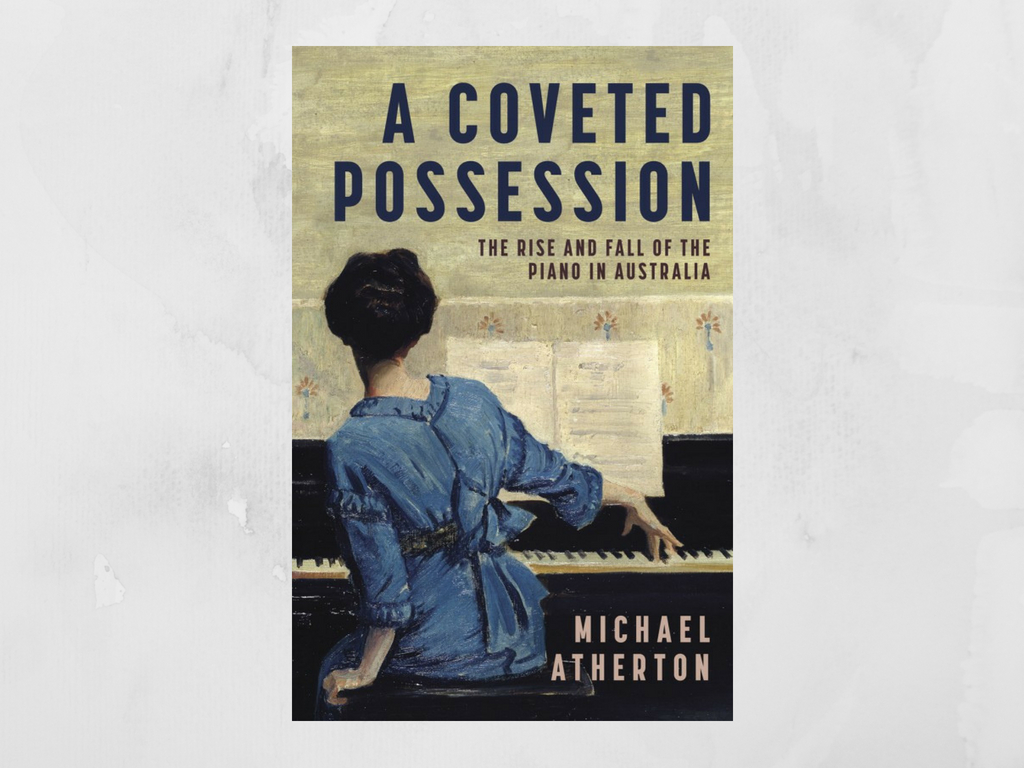
A Coveted Possession documents the popularity of the piano in Australia. Once a treasured member of the household, the piano fell out of favour once people became switched on to the likes of radio and television. Michael Atherton’s highly readable and intriguing book explores the rich cultural history behind this, at times, beloved instrument.
Atherton, a professor, musician and historian, and certainly an authority on this topic, celebrates the rich history of the piano. Recounting its history through the prism of Australia’s cultural lens. Atherton, for example, describes how a piano was among the cargo on the First Fleet. The piano was also something that was aspired to be owned because it was a sign of affluence. Elizabeth Macarthur apparently wrote home to say she had learned to play some songs on it. The instrument was also especially popular during the Gold Rush, when there were people flush with cash and looking for a source of entertainment. The piano was also a vital link back to the English motherland during those fledgling days of the colony.
The piano has evolved over time; with local manufacturers founding factories and using Australian parts in construction, finding that local timber was more resilient in our harsh climate. Yet, despite these local ingredients, there was no swaying Australia’s cultural cringe. In many cases, these locally-produced items had to be given foreign names, because people just didn’t want to purchase an instrument made in their own backyard.
The book also includes an incredible story about a piano taken from Changi Prison during the Second World War. Some prisoners had managed to smuggle a piano into the camp, to which the guards turned a blind eye. The instrument was used to keep the prisoners spirits high, and although it was lost for a few years, it now holds pride of place at the Australian War Memorial Museum. Throughout the book Atherton also tells the stories of our nations other precious pianos, like those found at Sydney’s Powerhouse Museum.
Included within the book is a brief chapter on some renowned Australian pianists, players like: Percy Grainger, Eileen Joyce and Roger Woodward. However, there isn’t a great deal of information about Australian composers offered here. Atherton, also doesn’t offer much information about the piano’s place in our art and literature. One only needs to look at Jane Campion’s The Piano to see how *ahem* instrumental the piano once was to our society.
A Coveted Possession is a fine read for anyone who plays the piano, or for those who are interested in the part that it played in our cultural history. It offers an informative look at the often changing attitudes towards this particular instrument. Whether you like the piano or loathe it, A Coveted Possession is an important and intriguing read and one that should prove to be music to your ears.
![]()
![]()
![]()
![]()
![]()
THREE STARS (OUT OF FIVE)
A Coveted Possession is available now through La Trobe University Press / Black Inc. Books
